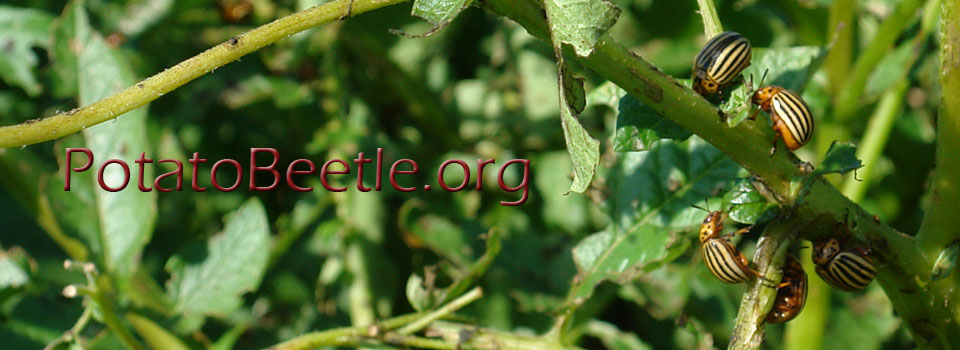Crossley MS, Rondon SI, Schoville SD. American Journal of Potato Research. 2018;95(5):495-503. doi: 10.1007/s12230-018-9654-0.
The Colorado potato beetle, Leptinotarsa decemlineata Say, is a serious pest of potato, Solanum tuberosum L., worldwide. Leptinotarsa decemlineata has a history of repeated adaptation to insecticides, and exhibits a geographic pattern of decreasing insecticide resistance from east to west in the USA. Imidacloprid is one of the most widely used insecticide in western states. In this study, we measured imidacloprid resistance among larval and adult L. decemlineata from ten locations in the Columbia Basin (southeastern Washington and northeastern Oregon) using topical LD50 bioassays, and compared them to estimates from ten locations in Minnesota and Wisconsin. Larval and adult imidacloprid LD50's and mean percent mortality were generally lowest in Washington and Oregon, but some sites exhibited reductions in mortality comparable to those observed at some Wisconsin sites. Adult LD50's suggest L. decemlineata in the Columbia Basin may be evolving in response to selection by neonicotinoid insecticides, but larval data suggest high susceptibility to imidacloprid remains in most populations. Future work should expand resistance monitoring efforts to include more regions in the West and other insecticide modes of action.
